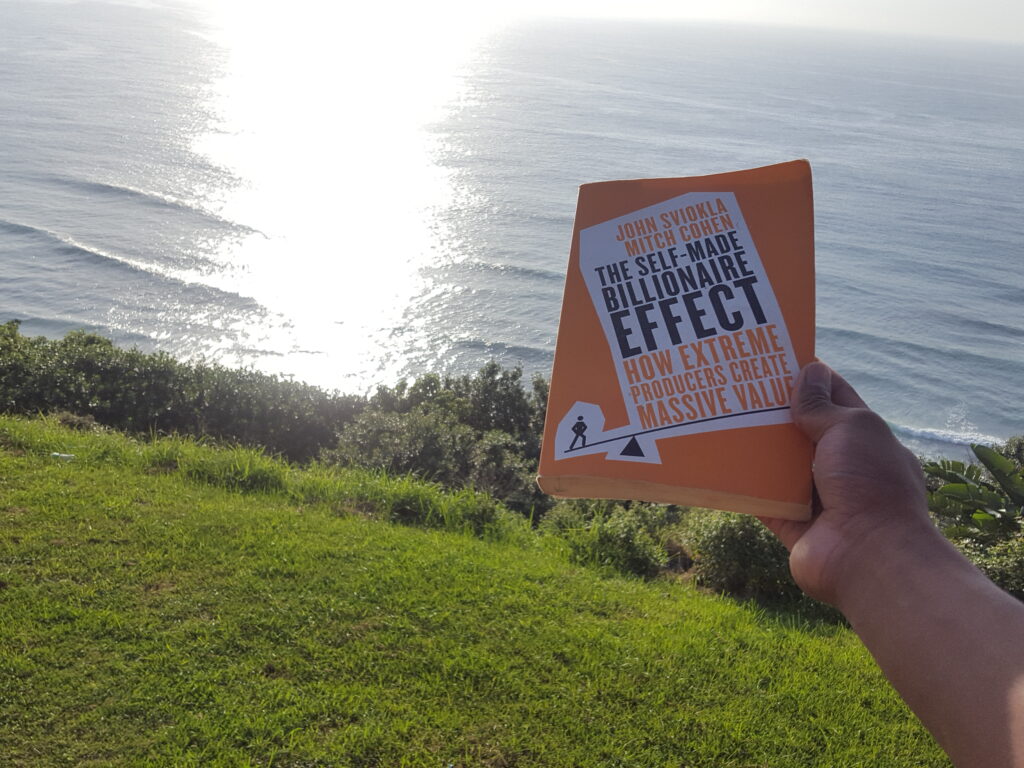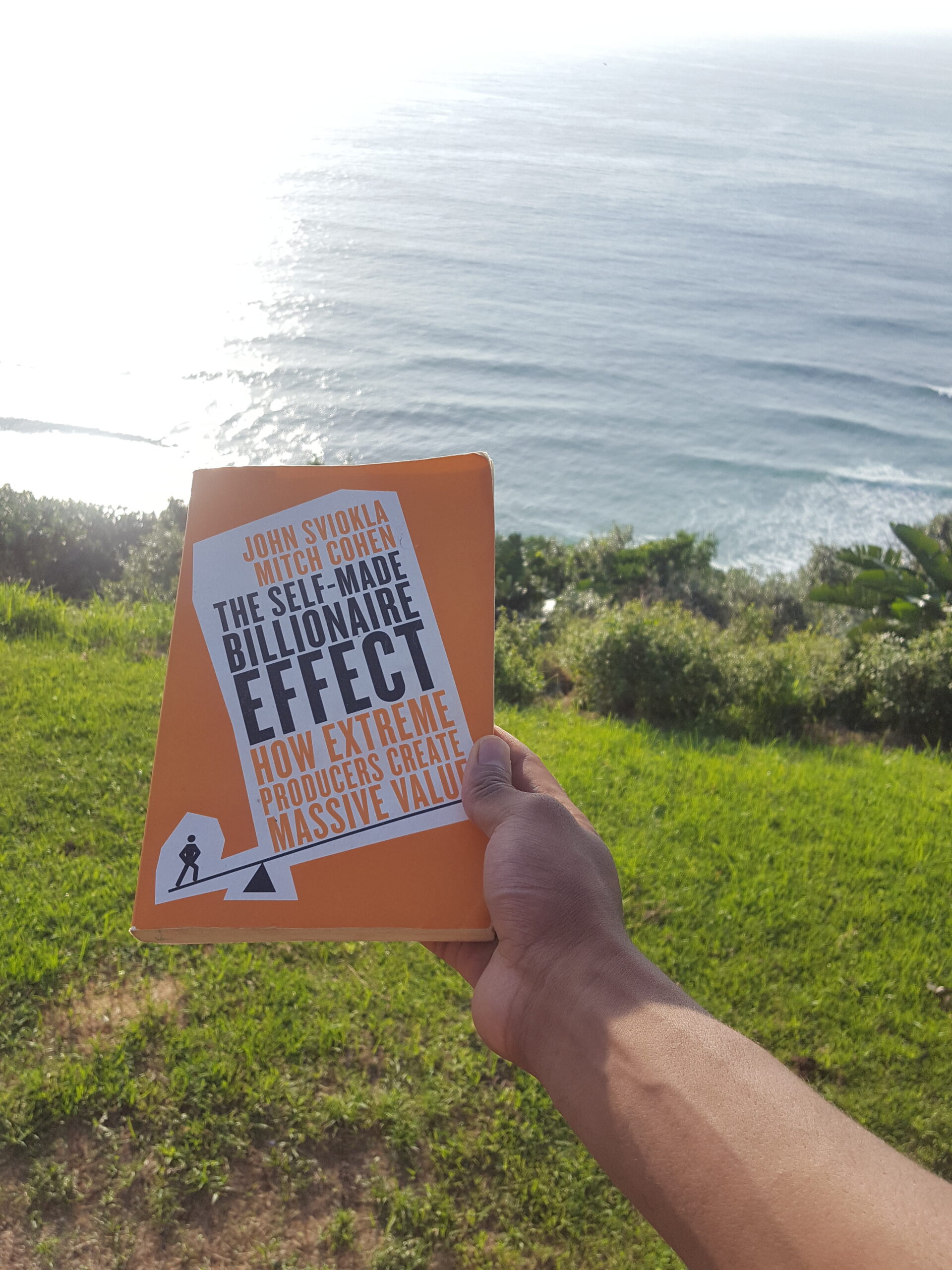
Unveiling the Mindset of the Super Successful: My Experience Reading “The Self-Made Billionaire Effect”
After diving into Martin Fridson’s How to Be a Billionaire, which offers a roadmap on how some of the greatest titans like Wayne Huizenga, Ross Perot, Bill Gates, Phil Anschutz, and John D. Rockefeller built their empires, I was eager to explore The Self-Made Billionaire Effect by Mitch Cohen. This book offers a different perspective—a study on the habits and mindsets of the ultra-wealthy, not unlike the approach Dr. Thomas Stanley took in studying millionaires.
What makes Cohen’s book stand out is its focus on the traits and behaviors that set these moguls apart from the rest of us. While Fridson’s book was more instructional, Cohen’s work digs deep into the psychology, decision-making processes, and strategies that the extremely wealthy seem to share. Here are a few concepts and observations that struck a chord with me:
Taking Risks from a Position of Knowledge
One of the things that stood out to me was how the ultra-successful approach risk-taking. They’re not reckless by any means. What they do differently is immerse themselves in knowledge and gain deep domain expertise before they take the plunge. They don’t just jump in blindly; they take calculated risks, understanding the landscape better than most. This approach allows them to see opportunities where others might only see danger. By thoroughly understanding the markets, industries, or technologies they engage with, they’re able to make informed decisions and seize opportunities that others might overlook.
Timing and Patient Urgency
Timing is everything, and the extremely wealthy have a knack for knowing when to act and when to hold back. Cohen introduces the concept of “patient urgency” to describe this skill. It’s the ability to operate at different speeds depending on the situation—sometimes moving quickly to seize an opportunity, other times taking a slow, measured approach. It’s all about balancing the need to act decisively with the wisdom to know when patience will pay off.
This idea reminded me of the method of “cannonballs and bullets,” a concept I’ve learned to apply in my own life. It’s about assessing how much time you really have to make a decision and not rushing just for the sake of being quick. Sometimes, it’s better to fire a few bullets—small, low-risk experiments—before you go all-in with a cannonball. This approach helps you make more informed decisions without the pressure of acting too quickly.
Partnerships: The Power of Pairing Producers and Performers
The power of partnerships is another critical theme in the book. The super successful know that they can’t do it all alone. They seek out partners who complement their strengths and help turn ideas into reality. Cohen highlights the importance of pairing the right groups of people—those who are “producers” and those who are “performers.” Producers are the visionaries who take action to turn good ideas into valuable realities, while performers focus on execution and bringing those ideas to life. When these two roles come together, they create a synergy that can propel a business to new heights.
Being of a Dual Mind: The Value of Thinking Differently
One of the more intriguing concepts in the book is the idea of being “of a dual mind.” Cohen suggests that the ability to hold contrasting ideas simultaneously is a mark of high intelligence. This means being able to see both the risks and the opportunities in a situation, to be optimistic yet cautious, and to balance short-term needs with long-term goals. It’s this duality that allows moguls to navigate complex situations and make decisions that others might shy away from.
This concept ties into a quote from Mark Twain that resonates deeply with me: “Whenever you find yourself on the side of the majority, it’s time to pause and reflect.” This mindset encapsulates what makes these individuals different—they’re often contrarians, willing to go against the grain to pursue what they believe in. Thinking differently, challenging the status quo, and being comfortable with holding unpopular opinions are traits that help them stand out in a crowded field.
Single-Minded Effort and Extraordinary Imaginative Vision
Cohen emphasizes that these moguls often possess a combination of single-minded effort and extraordinary imaginative vision. These two traits, when combined, create a powerful force for success. Single-minded effort refers to their intense focus on a particular goal or project. While they may be involved in multiple ventures, they channel all their energy into one task at a time, ensuring they excel at it before moving on to the next challenge.
Coupled with this is their extraordinary imaginative vision. The extremely wealthy often possess a visionary quality that allows them to see opportunities where others see obstacles. Their imagination isn’t just about dreaming big; it’s about envisioning possibilities that others might dismiss as impossible. This ability to dream and then focus relentlessly on making that dream a reality is a key driver of their success.
Fail but Try Again
Failure is not the end for these individuals; it’s merely a stepping stone. Cohen emphasizes that many of these super successful people experience failures, but what sets them apart is their willingness to try again. This persistence, combined with the lessons learned from failure, contributes to their eventual success. They understand that each failure brings them closer to their ultimate goal, and they use these experiences as opportunities to refine their strategies and approaches.
Salesmanship: A Critical Skill
Salesmanship is another critical skill that many of these moguls possess. Cohen talks about the importance of understanding the customer’s mind—knowing what they want, how they think, and what makes them tick. This is where the hard work of sales really shines through. It’s not just about closing a deal; it’s about going to great lengths to help people see things from your perspective. The super successful understand that a business revolves around the customer. They recognize that listening to the customer and delivering what they need is the key to building a thriving business.
Salesmanship is a tough journey because it teaches you so much about people—their desires, their fears, and their motivations. But it’s also incredibly rewarding, because once you master it, you have the power to influence and create value in ways that few others can.
Deliberate Accumulation of Knowledge
Lastly, the book discusses the importance of accumulating knowledge deliberately. This concept resonates deeply with me. It reinforces the idea that I need to continually learn, immerse myself in knowledge, and stay ahead of the curve to be the most competitive and capable person I can be. I absolutely love the idea of being so capable that you could drop me into a new country with just a parachute and the clothes on my back, and I’d be able to get by easily because of the skills and knowledge I’ve gained over the years.
This journey of self-improvement has been all about that—trying, failing, learning, and emerging stronger each time. The deliberate accumulation of knowledge isn’t just about reading books or acquiring new skills; it’s about investing in yourself so that you can face any challenge, no matter how daunting, with confidence and competence.
Final Thoughts
One quote that really captures the essence of this journey is from Jim Rohn: “Formal education will make you a living; self-education will make you a fortune.” This speaks to the power of investing in yourself—of going beyond the conventional wisdom and seeking out knowledge and experiences that will set you apart. Reading The Self-Made Billionaire Effect has deepened my understanding of what it takes to achieve extraordinary success. It’s not just about hard work or having a great idea; it’s about the mindset, resilience, and strategic thinking that go into every decision.
For anyone interested in understanding the psychology and habits of the world’s wealthiest individuals, this book is an invaluable resource. I encourage you to dive into these concepts and apply them to your own life. Whether or not you aspire to be a billionaire, the lessons in this book offer a roadmap for achieving success in whatever you pursue.
